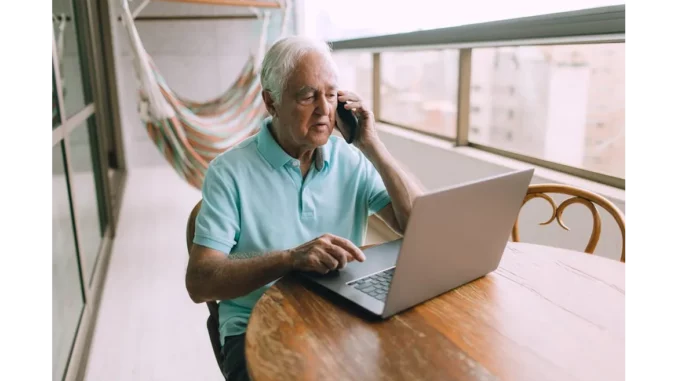
In the vibrant heart of New York City, as winter’s frosty grip begins to settle, a profound transformation is quietly unfolding within the senior living sector. This domain, traditionally rooted in conventional service delivery, is on the brink of a revolutionary shift driven by the advent of Artificial Intelligence (AI). To delve deeper into this intriguing evolution, I had the opportunity to converse with Eleanor Summers, a seasoned analyst in the senior care sector. Her insights illuminate the pivotal role AI is poised to play in reshaping the senior living landscape.
Meeting Eleanor in a charming Midtown café, where the soft murmur of conversation provided a relaxing backdrop, I was greeted with her warm and welcoming smile. “Artificial Intelligence has transcended its origins as a mere concept in science fiction,” she remarked, her eyes reflecting her enthusiasm. “It’s now a tangible force, revolutionising industries across the spectrum, and senior living is no exception.”
The global market for senior living is on the cusp of significant expansion, a development Eleanor largely attributes to the integration of AI technologies. “AI is being employed in ways that were once inconceivable,” she explained. “From predictive analytics that can anticipate potential health issues to AI-driven systems that customise care plans for individual residents, the potential applications are vast and groundbreaking.”
Eleanor emphasised one of the most compelling aspects of AI: its potential to enhance the quality of life for seniors. “Consider the everyday challenges the elderly face,” she elaborated. “AI-powered devices can assist with a range of tasks, from medication reminders to mobility support, allowing seniors to preserve their independence for longer. This technology isn’t solely about medical care; it’s about enriching overall well-being.”
A particularly intriguing example Eleanor shared was the deployment of AI-driven chatbots designed to combat loneliness among senior residents. “Loneliness is a pervasive issue within senior communities,” she pointed out. “These AI companions can engage in meaningful conversations, provide entertainment, and help residents maintain connections with family members. It’s an extraordinary application of technology to address a deeply human necessity.”
Our conversation naturally progressed to the economic ramifications of AI integration in senior living. Eleanor noted that while the upfront investment in AI technology can be significant, the long-term savings and efficiencies frequently outweigh these initial costs. “AI streamlines operations, reduces human error, and allows caregivers to concentrate on more complex tasks requiring a human touch,” she stated. “This not only enhances service delivery but also has the potential to lower costs for providers, making senior living more accessible to a broader population.”
Privacy and ethical considerations inevitably surfaced during our discussion. “Any conversation about AI must include a focus on ethical implications,” Eleanor cautioned. “Robust data protection measures and clear guidelines are essential to ensure responsible use of AI, especially when dealing with vulnerable populations like seniors.”
Her optimism about AI’s potential was tempered with a call for careful consideration. “The potential for AI to revolutionise senior living is immense,” she acknowledged, “but it is vital that we proceed with caution. Technology must serve people, not the other way around.”
As our discussion drew to a close, Eleanor reflected on the broader implications of AI within the senior living sector. “We stand on the threshold of a new era,” she mused. “AI is not merely a tool; it’s a partner in care. It offers us the opportunity to build communities that are not only efficient but also compassionate and attuned to the needs of their residents.”
With the anticipated growth of the global senior living market, spurred by these technological innovations, the future holds considerable promise. Eleanor’s insights offered a glimpse into a world where AI complements rather than replaces human interaction, fostering environments where seniors can truly flourish.
As I left the café, I carried with me a renewed sense of excitement about the potential of AI. This field continues to push the boundaries of what we once thought possible, challenging us to reimagine our approach to care. As Eleanor aptly remarked, “We’re merely at the beginning of a thrilling journey.”


Be the first to comment